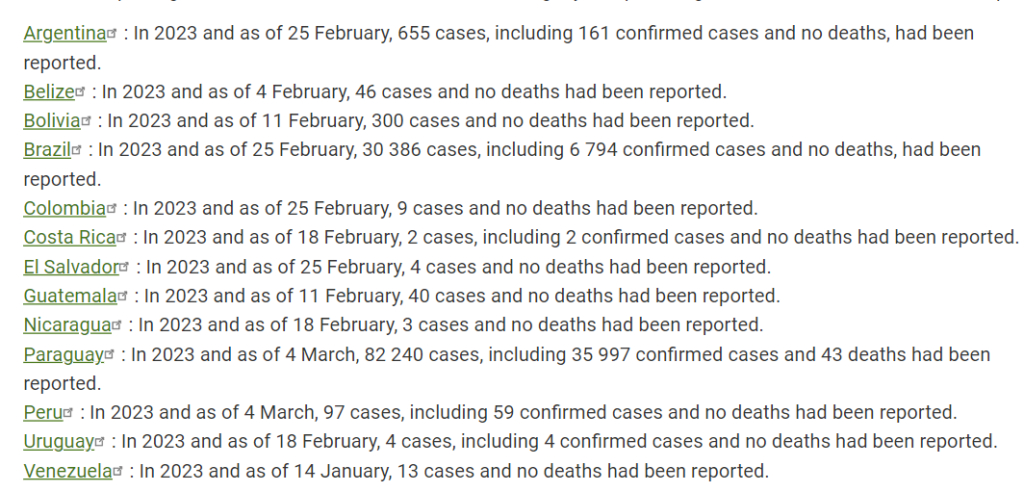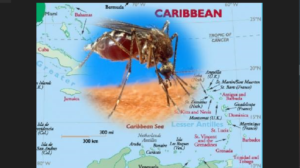BRIDGETOWN —The Pan American Health Organization (PAHO) says chikungunya has been identified in nearly 115 countries, with seasonal or sporadic outbreaks in the Americas, including the Caribbean.
Chikungunya is a disease transmitted through the bite of female Aedes mosquitoes infected with the chikungunya virus. The most common symptom is an abrupt onset of fever, often accompanied by joint pain that usually lasts for two weeks.
PAHO said experts met recently to discuss controlling the disease including ways to support countries in tackling the growing number of cases that reached more than 210,000 in the first months of 2023 in the Americas, including the Caribbean.
“While disease mortality is low, some patients experience debilitating pain that can last for as long as six months, affecting a person’s ability to move, work and take care of herself or others,” PAHO said, stating that the name “chikungunya” comes from the African Makonde language and means “bent over in pain.”
In 2023, however, increased chikungunya circulation was detected among five countries in the Americas, greatly surpassing numbers for the same period in previous year.
PAHO said the disease was first detected in the Americas in 2013 in St Martin; and, a year later, it had spread to most countries in the region. It said over a million cases were detected in the first year following its introduction in the continent.
In the first four months of 2023, PAHO said increased chikungunya circulation was detected in the region, with over 214,000 cases reported cases.
“What we see this year are changes in magnitude and timing. The epidemic is much earlier and with more cases than the past few years,” said Thais dos Santos, PAHO’s advisor on Surveillance and Control of Arboviral Diseases.
Speaking at the World Health Organization (WHO) EPI-WIN webinar titled “Chikungunya – Experiences from the current response to the outbreak in the Americas,” dos Santos said the hardest hit country is Paraguay, which “recorded its worst epidemic in history with 138,730 cases.”
Argentina and Uruguay also reported local transmission for the first time in 2023, and Bolivia reported high levels of transmission of both chikungunya (1,150 cases) and dengue (116,224 cases) – another disease transmitted by the same mosquito.
PAHO said climate change is one of the factors contributing to the spread of chikungunya.
It said unusually high temperatures, anticipated or increased rains and ensuing humidity have led the Aedes mosquitos to be present in areas where it was not previously able to survive.
“Longer stretches of warmer periods in the south of the Americas have enabled the mosquito to do well in places where it didn’t do well before,” dos Santos said.
Movement restrictions during the COVID-19 pandemic may have also had an impact on vector control methods, limiting activities such as house control visits to remove breeding sites, along with insecticide resistance, PAHO said.
It said that, although there are seven chikungunya vaccines under development, currently there is no approved vaccine or specific treatment for the disease.
In the Caribbean, there have been 46 cases of chikungunya reported since February — and no deaths.
—Caribbean Media Corporation



How is it that the TV Game shows are sending folks to these places?